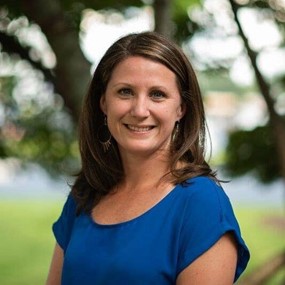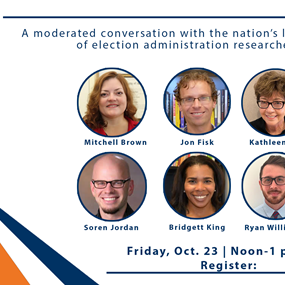‘I can fix him’: Louise Schulmann-Darsy studies what it means to be a woman through romance novels research

Boy meets girl. Girl fixes boy. Happily ever after?
Louise Schulmann-Darsy, a master’s student in the English Literature program, loves a good romance. Though after focusing her research lens on both historic and modern romance novels, she uncovered a pattern that shows what society expects of women in fiction and reality.
“Women are always the ones that have to change the men,” Schulmann-Darsy said. “So, whenever you see a character in a romance novel, there is the man who usually has deep traumas, right? When it comes to men having bad behavior, the woman has to actively work and endure the trauma first and then fix the man, even if that means suppressing her own desires.”
The story starts with Eliza Haywood, an 18th-century romance writer whose novels focused on heroines who act on their desire for love. In those novels, the heroine must change her prospective match into a suitable fit by fixing his flaws. When something goes wrong, only the women suffer the consequences.
Haywood wrote about women fixing men, then being silenced by society, to protest society’s view of women. In the 18th century, women were confined to the private sphere – the home – and were not free to pursue their desires as men were.
As a result, Haywood was controversial, and eventually, cancelled.
Schulmann-Darsy argues in her study, “Eliza Haywood and twenty-first century popular romance,” that not much has changed in the romance genre.
“There’s way more common denominators to those stories than I would’ve thought,” Schulmann-Darsy said. “That’s kind of what society still expects from women to a certain degree. When you really start looking at it, it’s almost always that the power dynamic is unbalanced. And the male character can be the sweetest boy ever. It doesn’t change the fact that society and authors give him more power.”
In today’s romance, Schulmann-Darsy found the trope repeated: the female love interest, who is less powerful than her male counterpart, must change him to be a “better man” in order to sustain a relationship. Along the way, she makes sacrifices.
Schulmann-Darsy provides several examples, including the “After” series by Anna Todd and the “Twilight” series by Stephanie Meyer.
In “After,” a young woman endures a toxic relationship to get her happily ever after, according to Schulmann-Darsy. The main character in the “Twilight” series gives up her humanity to be with the male love interest. Schulmann-Darsy challenges readers to apply her study’s findings to other modern romance books and see how prevalent the pattern is in the genre.
The key difference between modern romance and Haywood’s novels, Schulmann-Darsy said, is a lack of protest against the woman-fixes-man trope.
“It’s because it’s a pattern that works now. It’s what’s selling. So why stop?” Schulmann-Darsy said. “There’s a reason why it’s the trope to almost every single romance. It’s because it’s what people like and what people buy. So, there is no criticism of it, except when you start to research about romance and really think about it.”
These findings are significant because the woman-fixes-man trope appears in young adult literature. With the rise of book communities on social media and young adult romance book adaptations as television or movie series, Schulmann-Darsy said young readers should be informed of the difference between fantasy and real-world relationships.
“It’s problematic because who reads romance? Young girls,” Schulmann-Darsy said. “For young girls from 12 to 20, that’s where you start building yourself, when you start having your first relationship, your first crush. It’s dangerous to read a book in your young adult or teenage years that is not only romanticizing a toxic relationship, but also making it seem normal.”
Schulmann-Darsy, who holds a bachelor’s degree in English literature from Paris Nanterre University, presented her work at the 2023 Auburn Student Research Symposium hosted by the Office of the Vice President for Research and Economic Development. She hopes to expand on the work by further examining the role of women in fiction using a cultural and feminist studies lens.
“It was my favorite genre, and then I just realized how people considered it just to be like just silly love stories that women read on airplanes and nothing else,” Schulmann-Darsy said. “But then whenever you really look at it, it’s actually a very good reflection of society and what society expects from women.”
Find more information about the Master of Arts in English Literature program in the College of Liberal Arts.






